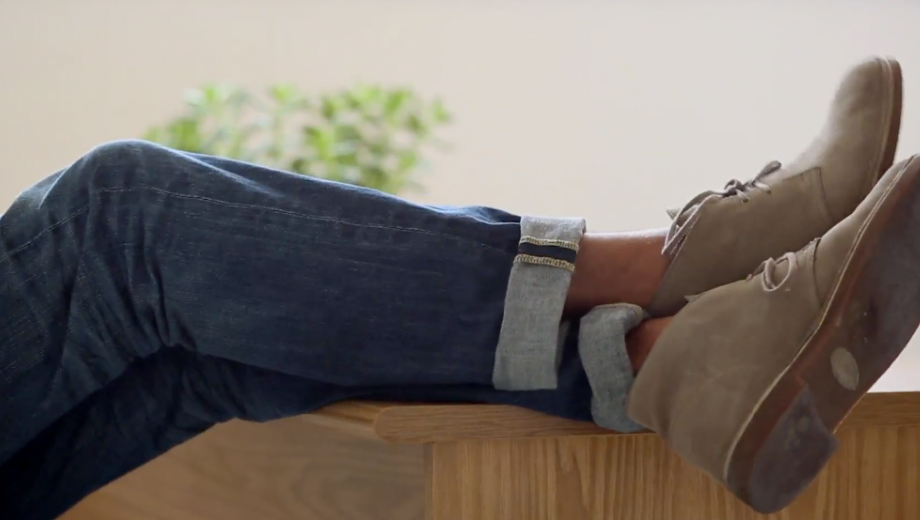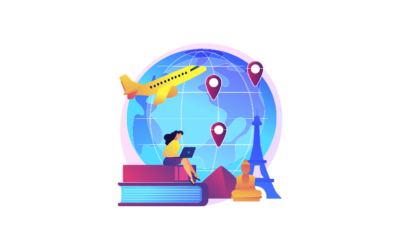Many freelancers are involved in the event business today, and that number is expected to keep growing. How can freelancers and mobile employees manage to stay focused, even when working from home?
“New Work” is considered one of the megatrends marking the transformation of society from an industrial economy to one based on knowledge. The lines between one’s professional and personal life are becoming blurred. Many of those working in creative fields are becoming increasingly independent, whether they’re full-time employees working from home or freelancers working for themselves.
This is especially true in the event industry. Whether it’s temporary event managers providing extra support for the team when things get really busy, specialists in technology, graphic design, video, or other fields, or even interim event managers: the event industry is a trendsetter when it comes to what’s been called “liquid work”.
As wonderful as this newfound freedom may sound for many, it’s also very difficult sometimes for creative workers to remain focused on what they need to get done.
Just a quick break to check Facebook, get lost in YouTube, postpone unpleasant tasks, or maybe hang some laundry and do the dishes – there’s a distraction lurking around every corner.
So what can one do to stay motivated? Here are 10 tips from us.
1. Some structure never hurts!
Try using to-do lists to organize your tasks into bite-size morsels, always true to the old saw “How do you eat an elephant? One bite at a time.” (Online) mind maps are also really useful, as they can help keep you from getting lost in the details and losing sight of the big picture.
Large projects and unpleasant tasks are often a source of anxiety. The result is that they’re often put off until the very last minute. Easy-to-digest tidbits, on the other hand, are a whole lot easier to tackle.
In our hectic day and age, we’re constantly being bombarded with a wide variety of media. A little more time on Twitter, a little Facebook, maybe check and see what’s in your email inbox… We’ll never be able to free ourselves completely from it all, and besides, the benefits of digital communications media are obvious.
Plan specific times for dealing with your emails or for social media activity. This way you’ll never lose sight of the reason you’re using these media channels of in the first place: to network with like-minded folks and to keep improving yourself. Always ask yourself what role cat content really plays in this – even if it is hilarious!
3. Avoid multi-tasking
One task after another, not three jobs at the same time. More mistakes are made when you attempt to keep five balls up in the air at the same time. Our productivity suffers when we have too many things to do at once. This isn’t always easy for event managers to understand, but the satisfaction that comes when you’ve finished a task is something you’ll achieve a lot sooner if you complete one task after the other.
4. Don’t be too much of a perfectionist
Of course, you can always try to do everything perfectly. But there’s also the well-known 80-20 rule, which says that the last 20% of the outcome takes up 80% of the time. Is that worth it?
If you make the experience of event participants your clear priority, you’ll be able to cut quite a few things out of your to-do list.
5. Use the best tools for you
One person may be more of a visual-tactile type and prefer their old Moleskine notebook, another might be the kind who needs a digital solution for everything and swears by Evernote. Whatever – the only thing that matters is that you find the right tools for you and that you stick with them. Don’t go chasing after every trend that comes along.
6. Change the scenery every now and then
The advantage of being a freelancer – or an employee with the flexibility to work when and where you want – is the mobility, of course. So use it! The best place to do conceptual work might be in the woods, and routine tasks can be taken care of at the café around the corner.
Movement encourages creativity. A change in scenery allows you to see things from a different perspective.
7. Find yourself (a) companion(s)
Some people like to go about things on their own. Others work best as part of a team. In any event, interaction with other people can make you more aware of your goals and priorities and allow you to better pursue them.
Many cities feature “coworking spaces”, some of which have a lounge you can pay to use by the hour or per visit. This is a good opportunity to network with other people, coach one another, or just have a nice chat. And maybe you’ll even get an event job out of it.
8. Reward yourself regularly
When you’ve finished an unpleasant task, that fact alone can be a great source of motivation. Go ahead and treat yourself to something you personally enjoy!
9. Incorporate breaks and rest periods into your work day
When you’re really absorbed in a task, you don’t notice time passing, do you? It’s still important to take breaks, though, if you want to stay productive over the long term. Try to establish a certain regularity when it comes to break times.
Follow the example of the Swedes: the “fika” (coffee break) is a sacred time, and almost every company has set fika routines at ten in the morning and three in the afternoon. And the Swedes aren’t exactly known for their lack of productivity…
10. Get started today!
You’ll never accomplish anything unless you go ahead and do it! So get started on changing your habits today. It won’t take long to see the results!



